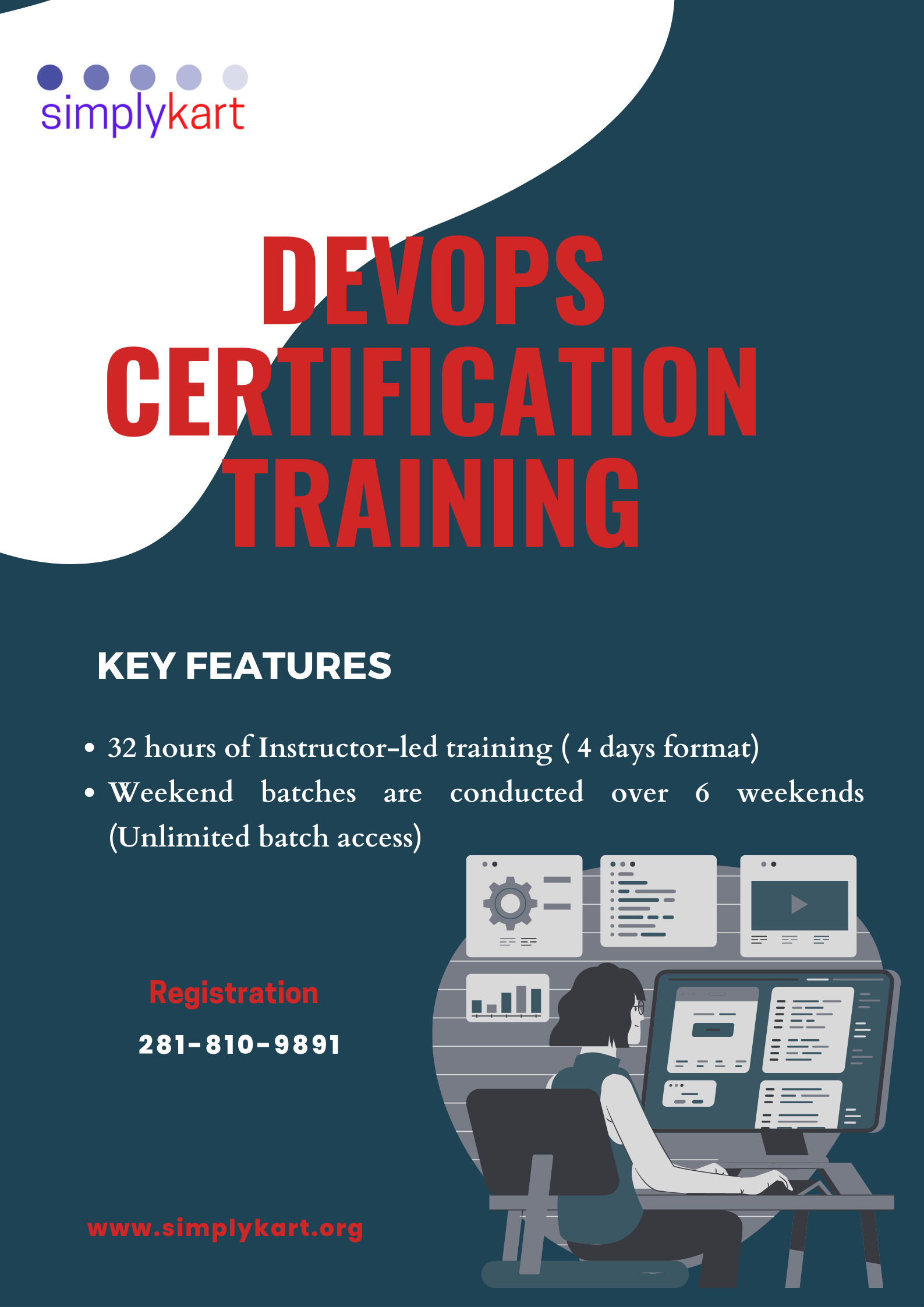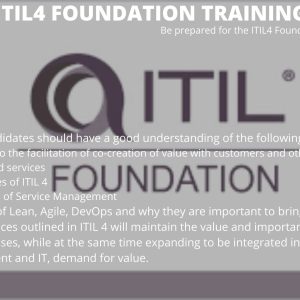Price range: $599.00 through $2,499.00
Simplykart’s DevOps Certification Training covers Git, Jenkins, Docker, Puppet, and Nagios through hands-on projects and expert instruction to prepare you for top DevOps roles and certifications in 2025.
We conduct classroom training across the state—customers can share their email address and location to confirm the training schedule in their city.
Description
DevOps Training – Become a Certified DevOps Practitioner in 2025
Simplykart’s DevOps Certification Training equips IT professionals, developers, and system administrators with the latest skills to excel in the modern DevOps ecosystem. Designed for 2025 demands, this comprehensive program covers Git version control, Jenkins continuous integration, Docker containerization, Puppet configuration management, and Nagios monitoring. Through practical, hands-on projects, you will master building and managing CI/CD pipelines, automation with Infrastructure as Code (IaC), and security integration with DevSecOps practices.
Our expert-led training ensures you gain real-world experience using industry-leading tools and workflows, preparing you for top DevOps roles and certifications like AWS DevOps Engineer, Docker DCA, and Kubernetes CKA.
Why Choose Simplykart’s DevOps Training?
-
Stay updated with 2025 market trends including GitOps, cloud-native tooling, and DevSecOps
-
Learn hands-on with tools like Docker networking, Puppet modules, and Nagios alerting
-
Flexible learning: classroom, live virtual, or self-paced with unlimited batch access
-
Trusted by global enterprises for industry-relevant curriculum and certifications
-
100% satisfaction guarantee with lifetime access and 24/7 expert support
Key Features
-
32 hours of instructor-led training over 4 days or 6 weekend batches
-
End-to-end DevOps lifecycle coverage: development, CI/CD, deployment, and monitoring
-
Real-world case studies and integrated projects combining Git, Jenkins, Docker, Puppet, Nagios
-
Bonus self-paced courses on Chef and Ansible included
-
Lifetime access to course materials and expert support
What You Will Learn
-
DevOps ecosystem fundamentals and evolving software delivery roles
-
Git version control and Jenkins continuous integration pipeline creation
-
Automating builds, tests, and deployments with DevSecOps best practices
-
Docker container management including commands, networking, volumes, image creation
-
Configuration management and automation with Puppet catalogs and modules
-
Real-time system monitoring and alerting using Nagios and plugins
-
Integrating and automating DevOps tools for efficient workflows
-
Project work applying learned technologies in realistic environments
Who Should Take This Course?
Software developers, testers, IT project managers, sysadmins, and professionals aiming to enhance their DevOps skills and accelerate software delivery careers.
Exam and Certification
Achieve the Simplykart DevOps Practitioner Certificate upon successful evaluation of your practical project. Candidates are encouraged to pursue additional vendor certifications such as AWS DevOps Engineer, Docker DCA, or Kubernetes CKA for advanced expertise. Certification renewal follows industry standards.
Frequently Asked Questions
What setup is required?
All labs and projects run on cloud environments accessible through your browser—no heavy installations required.
Are there prerequisites?
A basic understanding of software development lifecycle and IT operations is helpful but not mandatory.
Can I switch between batches or learning modes?
Yes, you can attend multiple batches within 90 days for scheduling flexibility.
Is group training available?
Yes. Contact support@simplykart.com for group discount inquiries.
Course Outline
-
DevOps fundamentals and ecosystem overview
-
Version control with Git and CI pipelines using Jenkins
-
Build and test automation strategies
-
Docker containerization: basics through advanced topics
-
Puppet configuration management: node classification and environment setup
-
Continuous monitoring and alerting with Nagios
-
Bonus modules on Chef and Ansible for infrastructure automation


